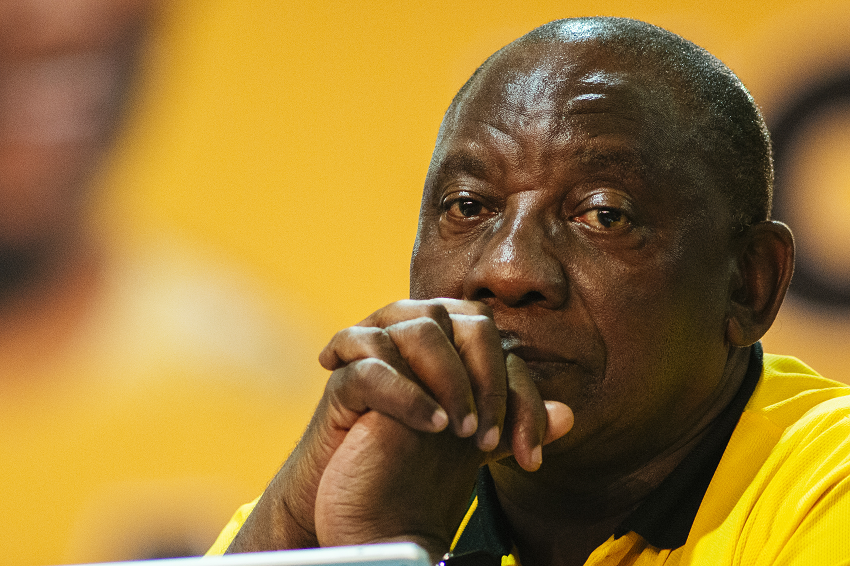
PRESSURE BUILDS
South Africa’s ruling party executive mulls Zuma’s future

The leaders of South Africa’s ruling African National Congress will meet today following new party leader Cyril Ramaphosa’s call for unity last Monday.
Top of the agenda will be President Jacob Zuma’s future, with a motion of no confidence—which would be the president’s seventh since assuming power in 2009—likely to be proposed. At this stage, it’s unclear whether Mr Zuma’s ouster is on the cards; the 86 voting leaders of the ANC are almost evenly split in their support or opposition to the embattled president and a decision must be reached by consensus. Raising a motion could be politically risky for Ramaphosa, however, with defeat exposing weakness and fractures in the ANC, further exacerbate its division.
Elsewhere today, a parliamentary committee will deliberate the process for impeaching presidents. The process will likely constitute the establishment of another committee to determine whether a sitting president has violated the law, committed serious misconduct, or is incapable of running the office. If the committee proposes to remove a sitting president, approval from two-thirds of parliament will be required for impeachment.
With pressure mounting on all sides, Zuma must fight to retain his presidency ahead of elections next year.
WAIVING RELIEF AWAY?
Trump mulls cancelling Iran sanction relief

President Trump will begin deliberating whether to reimpose sanctions on Iran today, possibly unequivocally violating the terms of the 2015 nuclear deal.
Although Trump extended sanctions relief in October even as he decertified Iran’s compliance with the deal, a recent spike in tensions could result in a change of tack. The Trump administration has publicly backed those protesting against the Islamic Republic over the past 10 days, and last week sanctioned five ballistic missile-related companies in Iran.
At the same time, the administration is involved in bipartisan talks with congressional leaders to codify US involvement in the nuclear deal, which would prevent Trump from spiking the deal in the short-term.
With the legislative negotiations underway, the administration appears to be maintaining its current strategy of technically adhering to the deal while publicly denouncing it. Expect the White House to double down on non-nuclear sanctions and generate enough uncertainty to dampen investor confidence in Iran, hindering its economic recovery and further straining relations.
Delve deeper: The Iranian nuclear deal and people-to-people diplomacy
RIVER DIPLOMACY
Lancang-Mekong Cooperation summit kicks off in Cambodia

Leaders from China, Cambodia, Laos, Myanmar, Vietnam and Thailand will gather in Phnom Penh for the second meeting of the Lancang-Mekong Cooperation group today.
Founded by China in 2015, the summit brings together six countries through which the 4350-kilometre Mekong River flows. 30 million people depend directly on the Mekong for food and jobs; fisheries along the river are worth $17 billion, which amounts to 3% of the combined economies of Vietnam, Cambodia, Laos and Thailand.
As such, China, which sits upstream, possesses considerable influence over the five downstream countries and has cemented that control by constructing dams that limit water required for downstream farming.
Today’s summit will further legitimise China’s leadership of the Mekong region. With no power to prevent China from damming its own portion of the river, the Lancang-Mekong Cooperation summit could be the best way for the downstream countries to influence plans for the river.

